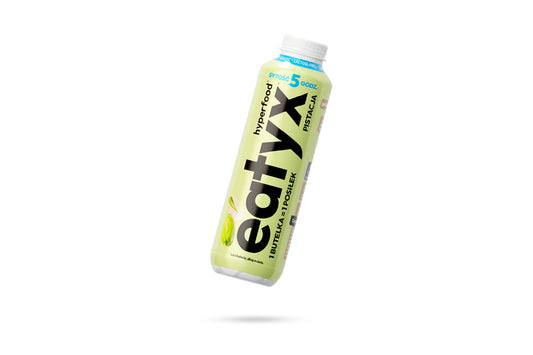The correct state of water balance in the body is of great importance for health. When the body is dehydrated, it stops functioning properly and the processes taking place in our body are disrupted. You should be aware of the fact that excess water is also an unfavorable phenomenon. With this in mind, it is worth checking your fluid intake regularly. How to check the water level in the body? You will find the answer below.
Water is essential for life. It is this compound that determines the proper course of metabolic processes, influences thermoregulation, is responsible for the transport of nutrients and allows the body to be cleansed of metabolic by-products and toxins from the external environment, and these are just a few items from a long list of processes for which water is responsible. It's no wonder that when fluid imbalance occurs, the body makes it clear. There are many symptoms of dehydration or fluid retention. The thing is that most of them are non-specific, which means that they may be typical of many conditions and diseases. Therefore, it is worth performing simple tests that will clearly indicate whether the water balance has been disturbed.
How to check the water level in the body?
The color of your urine says a lot about your body's hydration status. Under ideal conditions, it should be straw-colored. This color indicates the ideal volume of fluid intake. If it becomes a slightly darker color, the body tells us that we should slightly increase the volume of water we drink, but the light yellow color still does not indicate any abnormalities. Dark yellow or amber urine clearly indicates that the body is low on fluids. A light brown or dark orange color is a symptom of dehydration. If the urine is almost transparent, it means that the volume of fluids consumed should be slightly reduced.
The condition of our skin also says a lot about the level of fluids in our body. To check whether you are properly hydrating your body, just gently pinch the skin on the back of your hand, hold it for a few seconds and release it. Under normal conditions, the body should return to its original shape almost immediately. If the deformation persists, dehydration has most likely occurred.
How to check excess water in the body?
Too little fluid intake may lead to water retention in the body. It is a natural defense mechanism that prevents dehydration. This condition may be indicated by swelling, especially around the ankles, feet, fingers, face and eyelids. To find out if the problem is really related to fluid retention, just gently press the swollen skin. If the dent persists for a few seconds, it is most likely due to excess water.
How to check excess water in the body in a more professional way? Body composition testing using the bioimpedance method will help with this. The test is performed using a special device that sends a low-intensity electrical impulse (the test is completely painless) and on this basis determines the percentage of muscle, fat, bone and water tissue in body weight. The test can be performed by a dietitian and some doctors, but professional fitness clubs and gyms also have appropriate equipment. Modern bathroom scales are also equipped with a body measurement function.
What about lab tests? Tests that are worth performing to determine the level of fluids in the body include:
- blood count (the parameter determining the degree of hydration based on plasma volume is hematocrit),
- ionogram (determination of the concentration of basic electrolytes),
- total protein test.
However, it should be remembered that the interpretation of the results should be done by a doctor, based on the patient's general condition.
How to prevent fluid accumulation in the body?
If the tests have shown that water retention has occurred in the body, it is worth taking dietary supplements that will help solve this problem. We are talking about the eatyx HYPER DETOX 360 preparation, whose ingredients promote detoxification of the body and removal of water stagnation. The preparation is based on, among others, on plant extracts that have a diuretic effect.
How to prevent this condition from occurring in the future? Changing eating habits is of key importance in prevention. Highly processed products, high in salt and saturated fats should disappear from the menu. Even if you don't have time to prepare properly balanced meals, you should avoid fast food. Quick ready meals , balanced in terms of the requirements of a healthy diet, will help busy people maintain a healthy diet. We don't mean delicatessen products here.
Even people following an appropriate diet should supplement key microelements, especially those that influence the body's water management and fluid retention: zinc, magnesium and vitamin B6. These ingredients include the eatyx HYPER VITAMINS AND MINERALS + PROBIOTICS preparation, which was developed specifically to improve the body's vitality.
Proper hydration and regular physical activity are also of great importance in prevention. These are issues that cannot be underestimated.



